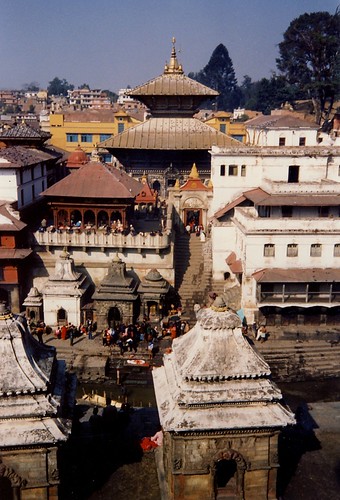On many television channels, the day of the confidence vote, the news coverage was accompanied by the jingle — “Singh is King” — the new movie starring Akshay Kumar coming up for release next week. Of course, many anchors were heard speculating as to which Singh was the king of the day – Manmohan Singh or Amar Singh.

But the original Singh who was “king” enough to be king maker passed away without fanfare last week. What impressed me, as I passed by the AK Gopalan Bhavan in New Delhi on Sunday where the body of Harkishen Singh Surjeet was kept for public viewing and last respects — at the CPI(M) office — was the vast number of peasants and workers who had come from far away places to pay tribute. Clearly this was spontaneous, no one had hired them to shed tears and wring their hands in mourning. The gesture from the large numbers of Sikh peasants in red turbans offering Laal Salaams was very genuine.
Harkishen Singh Surjeet was a key figure in crowning VP Singh, HD Devegowda, IK Gujral and the UPA. By default then, Manmohan Singh. Surjeet was perhaps more known as a deal maker par eminence in his latter years. However, he was still a deal maker with a difference – he personally remained spotlessly clean and though he presumably used all the methods in the book to get his job done, no gains ever personally accrued to him. His methods might or might not have been pure but in his thinking and ideology, his motives certainly were.

But going back in time, Harkishen Singh Surjeet’s early life, inspired by Bhagat Singh could be the stuff of myth, legend and cinema. After all Surjeet began his career as a member of Bhagat Singh’s Naujawan Bharat Sabha. On the first anniversary of his hanging as the Indian Express put it “… some of Bhagat Singh’s followers had decided to pull down the Union Jack and hoist the tricolor at the Hoshiarpur court. But when these people didn’t turn up, an enthusiastic teenager who incidentally had turned 16 that very day performed the act. When produced before the British magistrate, he stated his name as London Tod Singh (one who could demolish London).”
The story of Surjeet’s early life reminds us to actually take a look at the many ordinary people who took part in the freedom movement and often with significant daring but little or no recognition. Not, of course, that freedom fighters were looking for reward and recognition but the saga of London Tod Singh and many others are part of our freedom struggle and heritage which we know nothing about.
We are so fixated on leaders and political figures that we would make it appear that freedom was won by the individual acts of a few prominent figures. Obviously that was not so, but in the absence of any stories and anecdotes we do not know any better. How many more London Tod Singhs do we have in our midst? Sixty and more years after independence, certainly not many – if at all any. And then how many of us knew much about Surjeet’s extraordinary youth when he was still alive? Certainly not many.
We spend a lot of money tending to our tombs and mausoleums preserving a piece of our heritage. But clearly there is also a need to capture portions of our history while they are still amongst us. Or else they will be gone and we will be the poorer for it.




